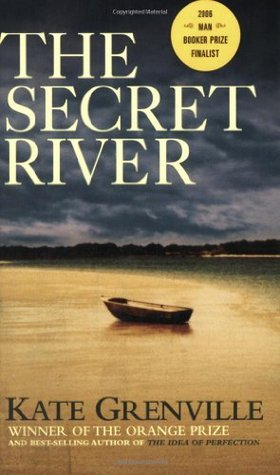What doyouthink?
Rate this book


334 pages, Paperback
First published January 1, 2005
After a childhood of poverty and petty crime in London's slums, William Thornhill is transported to New South Wales for the term of his natural life. But freedom can be bought, and when Thornhill claims a patch of land by the Hawkesbury River, the battle lines between the old and new inhabitants are drawn.Quite a sterile introduction to an otherwise intense, passionate, and gripping tale of the earliest European settlers in Australia.
After a time the mud-choked water and the ships it carried, thick on its back like fleas on a dog, became nothing more than a big room of which every corner was known. He came to love that wide pale light around him out on the river, the falling away of insignificant things in the face of the great radiance of the sky. He would rest on the oars at Hungerford Reach, where the tide could be relied on to sweep him around, and stare along the water at the way the light wrapped itself around every object. (p.34)Here he is in 1806, transported to the colony of New South Wales “during the term of his Natural Life” (p.74), bewildered by the strangeness of the environment:
Instead of dropping their leaves [eucalyptus trees] cast off their bark so it dangled among the branches like dirty rags. In every direction that the eye travelled from the settlement all it could see were the immense bulges and distances of that grey-green forest. There was something about its tangle that seemed to make the eye blind, searching for pattern and finding none. It was exhausting to look at: different everywhere and yet everywhere the same. (p.91)And here is Grenville’s description of how Thornhill perceived the Aboriginal people of Australia:
There were no signs that the blacks felt the place belonged to them. They had no fences that said,this is mine.No house that said,this is our home.There were no fields or flocks that said,we have put the labour of our hands into this place.(p.96)The minute we read this we see his terrible error.